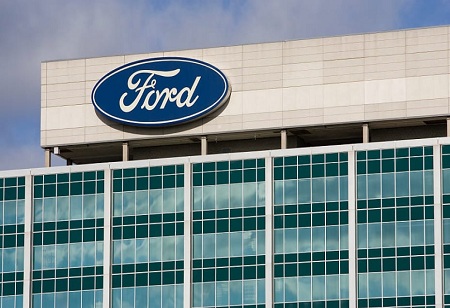
Ford to develop battery plant in drive with Chinese firm CATL

 As it ramps up the production of electric vehicles, US automaker Ford said that it will construct a new $3.5 billion battery plant in Michigan, broadening its battery capabilities with technology from a Chinese startup.
As it ramps up the production of electric vehicles, US automaker Ford said that it will construct a new $3.5 billion battery plant in Michigan, broadening its battery capabilities with technology from a Chinese startup.
At a gathering to promote the project, which involves a collaboration with the Chinese company Contemporary Amperex Technology Co., Ford Chairman Bill Ford and other corporate executives were joined by Michigan Governor Gretchen Whitmer.
Whitmer, a Democrat, touted the announcement as “another win for Michigan,” citing the addition of 2,500 new manufacturing jobs.
Ford had earlier thought about locating the facility in Virginia, but Republican Governor Glenn Youngkin rejected the offer in a move that was interpreted as an indication of Youngkin's intentions to run for the Republican nomination for president in 2024.
About 100 miles west of Detroit, in Marshall, Michigan, Ford said the project will diversify the company's battery profile away from its current reliance solely on nickel cobalt manganese (NCM) batteries, which are expensive to make due to a lack of raw materials.
Beginning in 2026, Ford will start producing lithium iron phosphate batteries in Marshall. According to the manufacturer, the technology uses less expensive raw materials and can withstand faster and more frequent charging than NCM batteries.
According to the agreement with Contemporary Amperex, a fully owned Ford subsidiary would produce the battery cells using the expertise and services in lithium iron phosphate battery cells offered by Contemporary Amperex, according to Ford.
By the end of 2023, the auto giant aims to produce 600,000 electric vehicles globally annually, and by the end of 2026, two million.
“Ford’s electric vehicle lineup has generated huge demand,” said Chief Executive Jim Farley.
Ford was the "first carmaker to commit," he continued, to producing both types of batteries in the country in order to provide consumers with as many electric vehicles as feasible.

